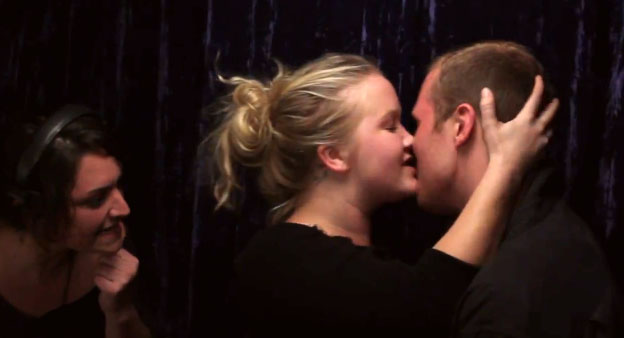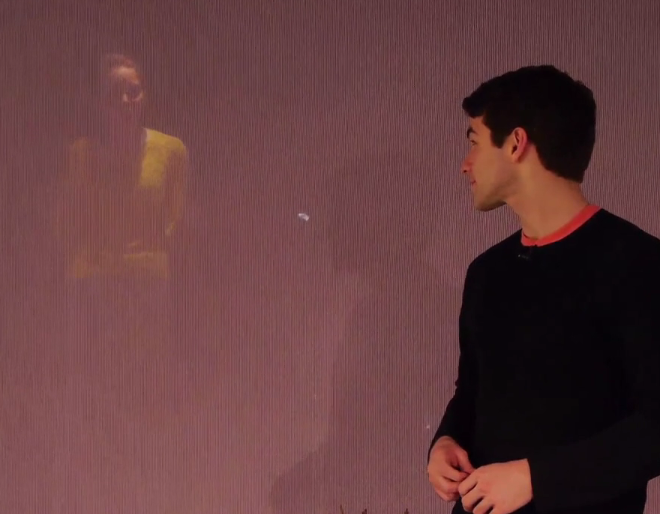Don't speak!
As a native New Yorker, my parents raised me on a steady diet of Broadway musicals (back when frequent indulgences like that wouldn’t put you in the poorhouse). As a child, I remember thinking how wonderful it would be if people could just burst into song in real life. But what if they never ever stopped singing? That’s the very definition of a sung-through musical, a show in which all (or almost all) of the text is rendered in song. Composer Andrew Lloyd Webber pioneered the genre with Jesus Christ Superstar (often dubbed a rock opera), and then popularized it with Evita, Cats and pretty much everything else he ever wrote.
But like Webber’s oeuvre, the sung-through form itself is controversial, for if a musical has no dialog, how is it any different than an opera? This question has been debated by theatre and music luminaries many, many, many times, and even outspoken audience members have offered up their playful opinions: “When someone starts singing after being stabbed, it’s an opera.” To make matters more complicated, the line is forever getting blurrier as more sung-through shows are written in a wide range of musical styles (Rent; Caroline, or Change; American Idiot; Falsettos; The Last 5 Years to name a handful).
In a 2000 New York Times interview with theatre legend Stephen Sondheim pegged to the New York Philharmonic’s concert version of his masterwork Sweeney Todd, he shared his thoughts on the opera/sung-through question: context. “Essentially, the difference, I think, is in the expectation of the audience. Obviously, there are differences in terms of performers and how they approach singing as an art form. But primarily an opera is something done in an opera house in front of an opera audience. And a show, or whatever you want to call it — musical play, musical comedy — is something done in either a Broadway or Off-Broadway theatre, in front of that kind of audience.” But then how does he explain Baz Luhrmann’s Broadway mounting of Puccini’s opera La Bohème? Or the fact that the recent production of DuBose Heyward and the Gershwins’ opera Porgy and Bess won the 2012 Tony for Best Revival of a Musical? Or all those people who say they love going to see “operas” like Les Misérables and The Phantom of the Opera–heck, the latter has the word opera in its title, so it’s gotta be one, right?
Although there will never be a definitive answer to the argument, a few years ago New York Times chief classical music critic Anthony Tommasini wrote a well-thought-out article in which he made a pretty convincing case for how to tell them apart: “Both genres seek to combine words and music in dynamic, felicitous and, to invoke that all-purpose term, artistic ways. But in opera, music is the driving force; in musical theatre, words come first. This explains why for centuries opera-goers have revered works written in languages they do not speak… [Ultimately] theatergoing audiences may not care much whether a show is a musical or an opera.”
And that last line is the big takeaway: Art is in the eye of the beholder. If you’re enjoying yourself, it may not matter what you call a show.
—Raven Snook
Made with our friends at the Vineyard Theatre
Vineyard Theatre is a nonprofit theatre company dedicated to new work, bold programming, and the support of artists. One of America’s preeminent centers for the creation of new plays and musicals, Vineyard Theatre has consistently premiered provocative, groundbreaking works by both new and established writers. From our Tony Award-winning Avenue Q, Obie Award-winning [title of show], Kander and Ebb’s The Scottsboro Boys (12 Tony nominations), and Nicky Silver’s The Lyons—which all went on to Broadway runs—to our Pulitzer Prize-winning plays How I Learned to Drive by Paula Vogel and Three Tall Women by Edward Albee, to such notable projects as Tarell Alvin McCraney’s Wig Out!, Nicky Silver’s Pterodactyls, Becky Mode’s Fully Committed, Craig Lucas’ The Dying Gaul, Polly Pen’s Goblin Market, Christopher Shinn’s Where Do We Live, Cornelius Eady’s Brutal Imagination, Gina Gionfriddo’s After Ashley, the Laura Nyro musical Eli’s Comin’, Anne Washburn’s The Internationalist, Julia Cho’s The Piano Teacher, Ben Katchor and Mark Mulcahy’s The Slug Bearers of Kayrol Island, Jenny Schwartz’s God’s Ear, and more recent acclaimed productions of The Civilians’ This Beautiful City, Colman Domingo’s A Boy and His Soul, Adam Rapp’s The Metal Children, Will Eno’s Middletown, and Hunter Bell, Susan Blackwell and Jeff Bowen’s Now.Here.This., we strive to produce new work that challenges both our audiences and artists. Works premiered at the Vineyard have garnered two Pulitzer Prizes, three Tony Awards, and numerous OBIE, Drama Desk, Lucille Lortel, Outer Critics, and New York Drama Critics Circle Awards. It is our goal to bring a spirit of adventure and risk to the art of making theatre, and we’re proud to be the recipient of special OBIE, Drama Desk and Lucille Lortel Awards for Sustained Excellence.

